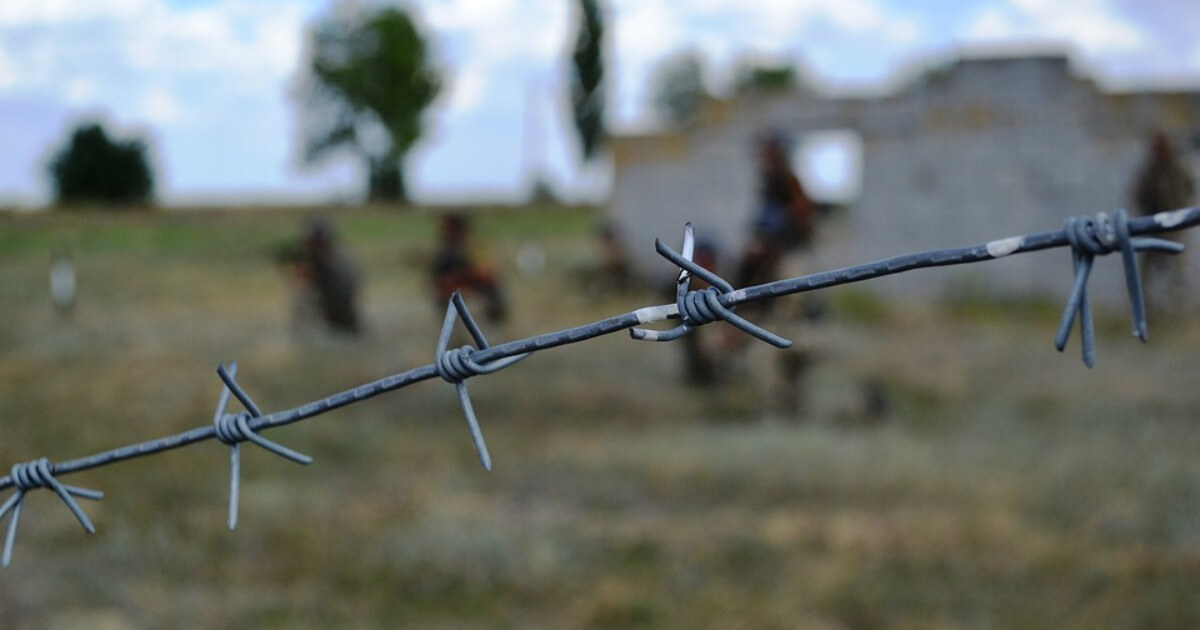The Iranian People and Their Many Wars
Iranians have endured 40 years of war with their own government, eight years of war with Iraq and an ongoing economic war with U.S.
January 13, 2020

The assassination of Qassem Soleimani by the United States, and the Iranian retaliatory attack on two U.S. bases in Iraq renewed the prospect of a deadly shooting war with irreparable consequences between Iran and the United States.
Despite conciliatory gestures and comments by leaders of both countries in recent days, the threat of war remains. Iran’s more than 80 million people will be the primary casualty of this war.
Iranians have grappled with 40 years of war with their own government, eight years of a devastating war with Iraq and crippling sanctions and undeclared economic war with the United States and others.
A new war will exacerbate their already dire conditions. Peace will enhance their chances of winning their internal war.
A 40-year war with the government
In 1979, the Islamic Republic of Iran seized power with a promise of freedom, independence and prosperity for the Iranian people.
Soon after, the new government assaulted even the limited freedoms people enjoyed. It ended all political rights, jailed, tortured, and executed its opponents and instilled a rein of terror inside Iran.
Under the guise of the war against “Westoxication,” the Islamic Republic forced a mandatory hijab on Iranian women, banned music and forbade all types of independent cultural expression. The Islamic Republic demonized laughter and joy and celebrated sorrow and hunger for martyrdom.
Iranian women and the youth resisted. They fearlessly confronted the government and turned the everyday life into a battlefield for regaining their rights.
Against the state project of worldly sorrow, they created a movement for joy. They defied the cultural norms of the Islamic Republic and its mandatory body politics for women.
Forty years after coming to power, the Islamic Republic’s cultural war continues. But its original project is largely defeated. The government continues to violently repress any expression of political freedom. And its cultural utopia on earth remains a mirage.
The Iran-Iraq war
While the Iranian people were grappling with the political and cultural violence of the Islamic Republic, the eight-year war with Iraq brought new horrors into their midst. More than half a million Iranians died. Hundreds of thousands returned home disabled, or suffering from post-traumatic stress.
The Iranian government used the war to further clamp down on political opposition and people’s expression of discontent. Challenging the war and its consequences amounted to opposing the will of God and the fight against its enemies, the government declared.
The United States was not directly a part of the war, but it helped Saddam Hussein on various occasions during the conflict. The American support gave further legitimacy to the government’s repression of dissent and opposition to the war.
Helped by the Americans, Iraq used Mustard Gas and Sarin in four battles towards the final days of the war. The attacks tilted the balance of power to Iraq’s advantage and forced the Iranian government to agree to a ceasefire.
Ayatollah Khomeini called agreeing to the ceasefire “worse than drinking poison.”
Khomeini ordered the mass execution of political prisoners to prevent any future questioning of the government’s eight years of war and its consequences. Some 5,000 men, women and children were killed in prisons across the country in the summer of 1988. They became the final casualties of the Iran-Iraq war.
Sanctions: An economic war on the Iranian people
The international sanctions that began during the Ahmadinejad presidency and ended with the signing of the Joint Comprehensive Plan of Action (JCPOA) in 2015 had a devastating effect on the welfare of ordinary Iranians. The Iranian government, however, largely escaped the consequences of the sanctions.
Millions of Iranians celebrated the signing of JCPOA and the lifting of economic sanctions. Their joy did not last long. Trump’s withdrawal from the JCPOA on May 18, 2018,the imposition of new sanctions and the “maximum pressure” campaign soon after inflicted unprecedented pain on Iranian people.
The shortage of life-saving medicine, the plunge in the national currency, soaring prices, the non-payment of wages by employers facing bankruptcy, increasing rents and housing prices and other economic problems further pushed many Iranians over the brink.
Meanwhile, The Islamic Revolutionary Guards (IRGC), one of the main targets of Iran sanctions, benefited handsomely. Trump’s maximum pressure campaign succeeded. But it hit the wrong target.
Since 1979, Iran has gradually become a basket case of extreme corruption and theft of public resources by a myriad of state and quasi-state institutions and individuals.
The Iranian economy is now dominated by the IRGC and its large network of enterprises and holding companies, non-tax paying religious foundations and groups and individuals affiliated with various fractions of the government.
Amplifying economic problems
Mismanagement and factional politics have amplified economic problems. A precarious class of young Iranians struggling with unemployment and underemployment and poverty has emerged. They have been among the main victims of Trump’s sanctions.
Crumbling under economic pressure, they protested against a sudden tripling of gas prices last November. The economic protest soon became a loud cry against the government. And the government responded with violence unseen in years.
Hundreds were shot dead and thousands imprisoned. Calm returned to the streets. But the economic marginalization and political frustration remained. The dead became the new casualties of the economic war on Iranian people. Trump’s sanctions and the Iranian government’s bullets are responsible.
The benefits of peace
Iranians have been living under a reckless theocracy that has, for 40 years, thrived on crisis and tension, primarily with the United States.
From the American embassy takeover on November 4, 1979 to the current crisis, Iranian people have been the main victims of the adversarial relations between the two countries.
Being in a state of constant conflict with the “Great Satan” helped legitimize the government’s repression of its own people. An actual shooting war with the United States will further empower the government against the Iranian people. War will push back any possibility of positive change in Iran for many years to come.
Iranians have much to gain from peace. Peace would remove the extra layers of economic insecurity and end the external economic war.
The normalization of relations with the United States and the lifting of sanctions would help partially alleviate people’s economic pains. It will create the badly needed breathing space for millions of Iranians.
The Iran-Iraq war and the Iraqi bombing campaign in Tehran and other cities created daunting memories that continue to haunt many Iranians.
“I woke up from the thunder storm thinking we were bombed. I was shivering. I knew it was the storm but I was still frightened,” a young man from Tehran said shortly after the killing of Qassem Soleimani. Peace would end the many years of anguish that has haunted him and others.
Conclusion
Peace will not free the Iranians from the war imposed on them by their government. The corrupt and deeply embedded economic structure will remain.
Iranians will continue to grapple with the task of transforming the country’s economic and political structures. Peace would strengthen their hands in this battle. It would take away from the Islamic Republic its arch enemy and one of its central sources of legitimacy.
Takeaways
Iranians have endured 40 years of war with their own government, eight years of war with Iraq and an ongoing economic war with US.
The Iran-Iraq war created daunting memories that continue to haunt many Iranians.
Forty years after coming to power, the Islamic Republic’s cultural war continues. But its original project is largely defeated.
Iranians will continue to grapple with the task of transforming the country’s economic and political structures. Peace will strengthen their hand in this battle.

